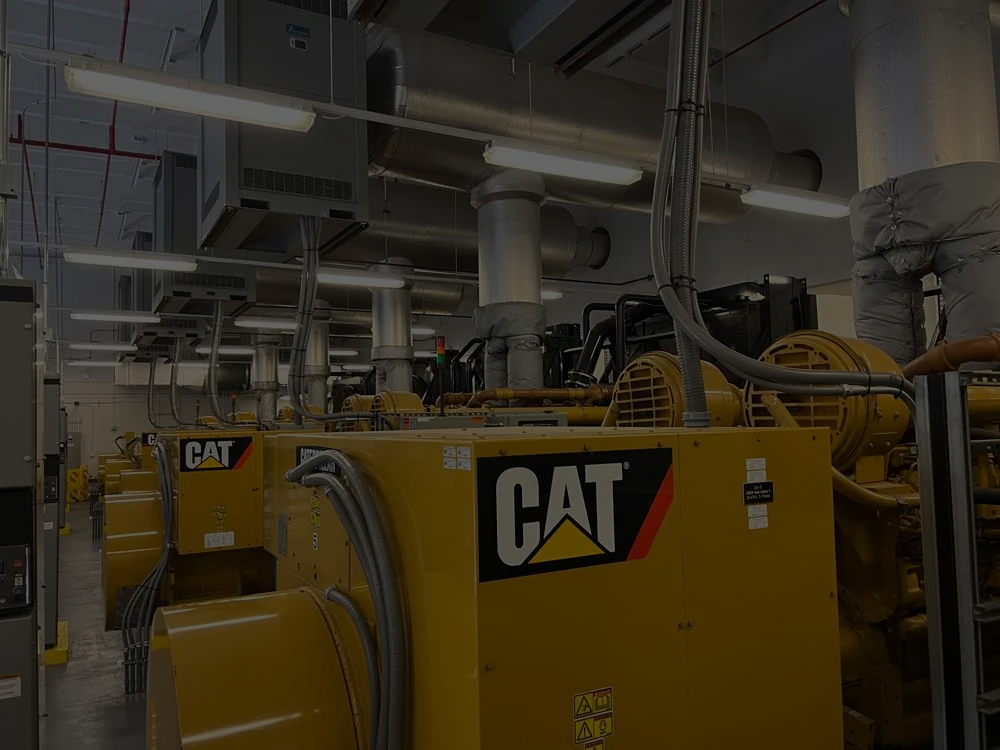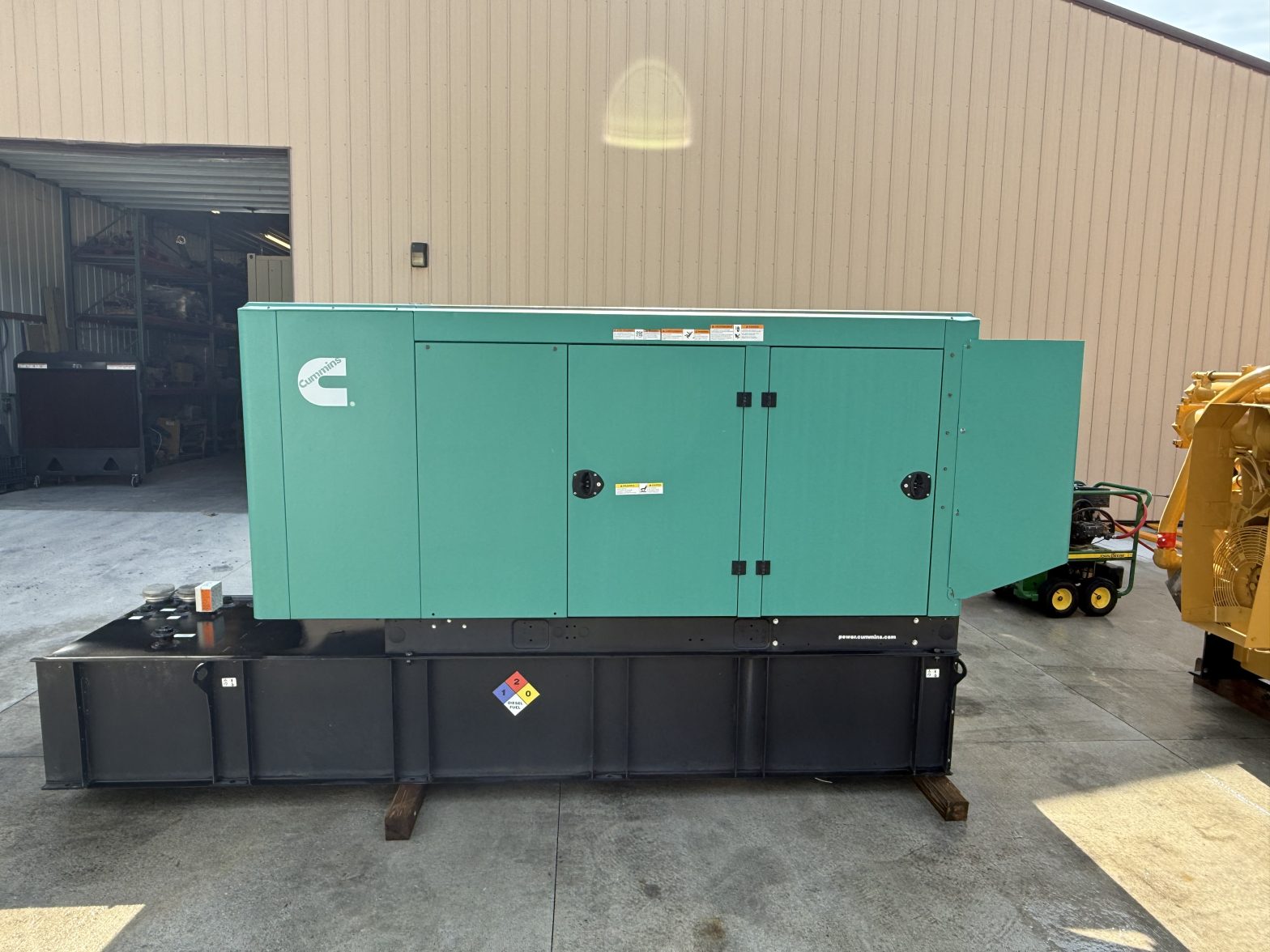
Blog
Used vs New Generators: Which is Best for Your Business?

As an electrical contractor, have you ever found yourself sweating over the choice between used vs new generators for a big commercial build? Maybe you’re asking if you should save money upfront with a used generator or make a larger capital investment in a new one. And let’s face it, these questions can feel like a high-stakes gamble. What if the used one kicks the bucket early? Or what if that shiny new generator blows the budget?
Choosing between used vs new generators isn’t simple. This guide helps you by examining the factors that matter most: long-term costs, reliability, and overall return on investment. Consider these points when evaluating your generator options.
Table of Contents:
- Used vs New Generators: What You Need To Know
- Breaking Down the Cost of Used vs New Generators
- Assessing Reliability and Performance
- Environmental Factors and Regulatory Compliance
- Making the Financial Case: ROI and Depreciation
- Real-World Examples and Case Studies
- The Role of Technology in Generator Management
- How To Determine Your Specific Needs
- Navigating the Purchase Process
- Comparing Used vs New Generators: A Summary
- FAQ Section
- Conclusion
Used vs New Generators: What You Need To Know
When looking at used vs new generators, keep some key points in mind. Considering generator options early in your project planning helps to make the best choice.
- Understand Your Power Needs.
- Consider the Budget.
- Evaluate Condition and History.
But first, let’s dive into used vs new generators a little further and understand the basics. This foundational knowledge can greatly influence your decision.
What is a Generator and How Does it Work?
At its core, a generator converts mechanical energy into electric power. Diesel engines often power generators, using fuel consumption to create that energy. Generators come in all shapes and sizes, making it crucial to select one based on your specific requirements.
They are vital in situations ranging from emergency power during a power outage to providing the main source of electricity where grid power is unavailable. Having a reliable power source is critical.
Types of Generators Available
Several types of generators are available, each suited to specific uses. Understanding the generator engine and fuel source can help you select the best fit for your needs.
- Diesel Generators: These are known for their reliability and are frequently employed in industrial settings. They offer robust performance and are suitable for heavy-duty applications.
- Gasoline Generators: Usually, you would use these for smaller, portable generators. These are convenient for temporary power needs or smaller projects.
- Natural Gas Generators: These provide a cleaner, quieter operation. Natural gas generators are a great option if you are directly tied to a natural gas line.
Breaking Down the Cost of Used vs New Generators
The initial purchase price is just the start when weighing used vs new generators. The total cost includes proper maintenance, fuel use, and potential downtime costs. Calculating the generator’s total cost can impact your choice of power solution.
Initial Purchase Price
New generators have higher upfront costs. Used generators offer an appealing discount initially, making them seem like a more budget-friendly generator buy.
Maintenance Costs
New generators typically have lower early maintenance expenses. You may need to replace parts or service used generators sooner, potentially leading to costly repairs.
Fuel Efficiency and Operational Costs
Newer models often have better fuel efficiency. This could lead to significant savings in generator fuel costs over time. A good way to keep track is understanding your generator’s total cost of ownership.
Assessing Reliability and Performance
How well a generator performs under pressure can dictate whether you are able to meet deadlines. Evaluating standby generators can help to make sure they meet performance expectations.
Performance Expectations
New generators have predictable performance levels. They come with manufacturer’s warranty.
Evaluating the Condition of Used Generators
Check used generators carefully before buying. Knowing the full history is a MUST, which can often be a risk. Consider conducting a load bank test to assess performance under load.
Warranty and Support
New generators come with comprehensive warranties and support. Used generators might have limited or no coverage, so carefully review the available aftermarket additions.
Environmental Factors and Regulatory Compliance
Regulations may affect your choice of generators. These include emissions standards, making compliance a key consideration.
Emission Standards
Newer generators are made to comply with current emissions regulations, often meeting EPA tier standards. Older model units might need modifications to meet today’s standards. Make sure to evaluate condition and history, as mentioned earlier.
Noise Levels
Check noise levels, especially if your site is in a residential area. This helps with keeping in line with local regulations. A quieter generator is especially important in densely populated locations.
Making the Financial Case: ROI and Depreciation
Let’s explore the real numbers when comparing used vs new generators. Understanding ROI and depreciation is essential for financial planning.
Calculating Return on Investment (ROI)
Consider long-term expenses against initial savings to see the actual ROI. Don’t make your decision before you calculate the total cost of ownership. Factoring in items such as generator service, fuel consumption and lead times is crucial.
Depreciation Rates
New generators depreciate quickly at first. However, used equipment depreciates slower, keeping some asset value. Understanding depreciation rates can impact your generator buying decision.
Real-World Examples and Case Studies
Looking at what others have done helps in making a confident choice. Consider these case studies when thinking about buying generators.
Case Study 1: Construction Site
A large construction firm chose new generators for reliability. They saw fewer disruptions, finishing their project on time. Minimizing wait time can be crucial in construction.
Case Study 2: Remote Power Setup
A small team installed used generators in a remote location, saving money upfront. Still, the team needed to be diligent about performing regular maintenance.
The Role of Technology in Generator Management
New tech changes how generators are managed. Modern advancements offer significant benefits.
Smart Generator Features
New generators often come with smart tech for remote monitoring. Smart features include adjustments, which enhance efficiency and uptime. These can offer predictive insights for maintenance needs.
Monitoring and Diagnostics
Modern diagnostics can forecast maintenance needs, which reduces downtime. Keep this in mind during the used vs new generators debate. Real-time monitoring can help detect problems early.
How To Determine Your Specific Needs
Matching your generator to your project specifics can help to boost performance and trim costs. Accurate planning is important for generator options.
Load Calculation
Understand the loads you’re planning to power before deciding on a generator size. Get some advice when it comes to how much power you should get for your needs. Calculating your load requirements can prevent over or under-sizing your generator.
Future Scalability
Consider future power demands. Think about expansion, making sure your generator can cope with added loads. Planning for scalability helps future-proof your power systems.
Navigating the Purchase Process
Smart purchasing involves research. You must understand what to check, whether buying used or new. Knowing how to navigate the generator market is important.
Inspecting Used Generators
Check hours of service and maintenance history. Also, watch out for signs of wear or repairs when dealing with used equipment. Be sure to request a service record, if available.
What to Look for in New Generator Contracts
Know warranty terms and service agreements. Also, you must know if training is available when you buy a new generator. Review all terms before signing.
Comparing Used vs New Generators: A Summary
Here is a helpful summary table for comparing used vs new generators.
| Feature | Used Generators | New Generators |
|---|---|---|
| Initial Cost | Lower | Higher |
| Maintenance | Potentially Higher | Lower |
| Reliability | Variable | Generally Higher |
| Warranty | Limited or None | Comprehensive |
| Fuel Efficiency | May be Lower | Often Higher |
| Compliance | May Require Modifications | Typically Compliant |
Used generators can offer cost savings. This makes them attractive for budget-focused projects. Used power equipment offers a lower initial investment.
But there is a risk. Used generators might need more maintenance. In contrast, new generators come with reliability. New equipment ensures the latest model and features.
The reliability and support will also give you peace of mind, which could make used vs new generators an easier choice. Ultimately, deciding between used vs new generators depends on balancing initial savings with the realities of long-term costs, operational needs, and risk tolerance. Evaluate all standby generators and commercial generators to help in your decision.
FAQ Section
Here are some common questions to address the common questions when considering a generator buy:
- What is the lifespan of a generator?
The lifespan of a generator can vary widely depending on usage, proper maintenance, and the quality of the unit. Generally, a well-maintained generator can last anywhere from 10 to 30 years. Regular generator service is key to maximizing its lifespan. - Can I rent a generator instead of buying?
Yes, generator rental is a viable option, especially for short-term or temporary power needs. Generator rental provides flexibility without the upfront cost and maintenance responsibilities of owning a generator. This is beneficial when backup power is needed quickly, perhaps as an immediate power solution during lead times for new equipment. - What are the key factors to consider when choosing a generator?
When choosing a generator, several factors are paramount:- Power requirements (load calculation)
- Fuel type (diesel fuel, natural gas, gasoline)
- Portability (portable generators vs. stationary units)
- Noise level
- Emission standards
- Cost (initial purchase price vs. total cost of ownership)
Carefully assessing these factors will lead to a more informed decision.
- How important is regular maintenance for generators?
It’s crucial to implement a plan for regular maintenance to sustain performance and maximize generator lifespan. Regular maintenance helps avoid costly repairs.
Conclusion
Deciding between used vs new generators is not straightforward. There are pros and cons to both routes. It’s about lining up the realities of long-term costs, what the project needs, and how much risk you can handle. If keeping initial costs low is your focus, used generators seem great. However, for rock-solid dependability and less stress over time, new generators often come out on top.
